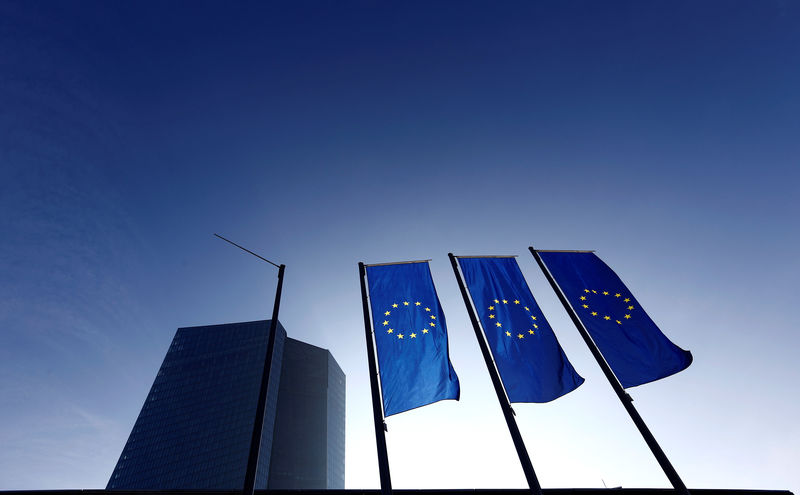By Balazs Koranyi and Francesco Canepa
FRANKFURT (Reuters) - Two top officials at the European Central Bank defended its ultra-easy monetary policy on Thursday after a rebound in inflation had upset bond markets and sparked criticism of it, particularly in cash-rich Germany.
With inflation surging well above expectations last month, calls have increased for the bank to claw back stimulus by phasing out its unprecedented 2.3 trillion euro stimulus programme that has kept borrowing costs at record lows for years.
But Benoit Coeure and Peter Praet, two members of the ECB's Executive Board, said the bank would keep looking through the rapid rise in inflation, which they mostly attributed to a bounce in oil prices.
"The ups and downs of monthly data are not relevant if they are temporary and have no implications for the medium-term outlook for price stability," Praet, who is also the ECB's chief economist, said in Berlin. "Continued monetary policy support is necessary."
He added that tariffs on imports and other protectionist proposals from the new U.S. administration are also alarming, with potential implications for the economic outlook.
His words were echoed by Coeure, who cautioned, however, that the ECB will watch out for any sign that the recovery in energy prices was starting to filter through to other goods and to salaries.
"We will continue to monitor closely the evolution of prices and costs in the coming weeks and months in order to assess any second-round effects of energy prices and also to judge the extent to which the increase in inflation represents a sustainable adjustment towards our objective," he said at an event in Paris.
Euro zone inflation hit 1.8 percent in January and is likely to exceed the ECB's target of almost 2 percent this year, eroding the value of cash at a time when the return that savers get on cash is zero or even negative.
This is a politically sensitive issue in Germany, where excess cash in bank accounts is abundant and the government is preparing for elections in September.
But core inflation, which does not include energy and food prices, was only half the headline figure, holding steady with little sign that price pressures are building.
"The ECB will continue to adhere to its monetary policy strategy, that is look through transitory changes in inflation and remain focused on underlying inflation dynamics," Praet said.
The ECB estimates that higher oil prices will add more than 40 basis points to inflation by February but the cumulative impact will then gradually wane.
Lending the ECB some unexpected support, the chief economist of Germany's traditionally hawkish Bundesbank said that the time was not yet right for tapering or winding down the ECB's bond buys, given stubbornly low core prices.
"I cannot see a reason to reduce the degree of the monetary stimulus for now," Jens Ulbrich said.

Tensions may still rise, however, especially as the ECB has already extended its asset buying programme until the end of year, even while reducing purchases by a quarter from April.